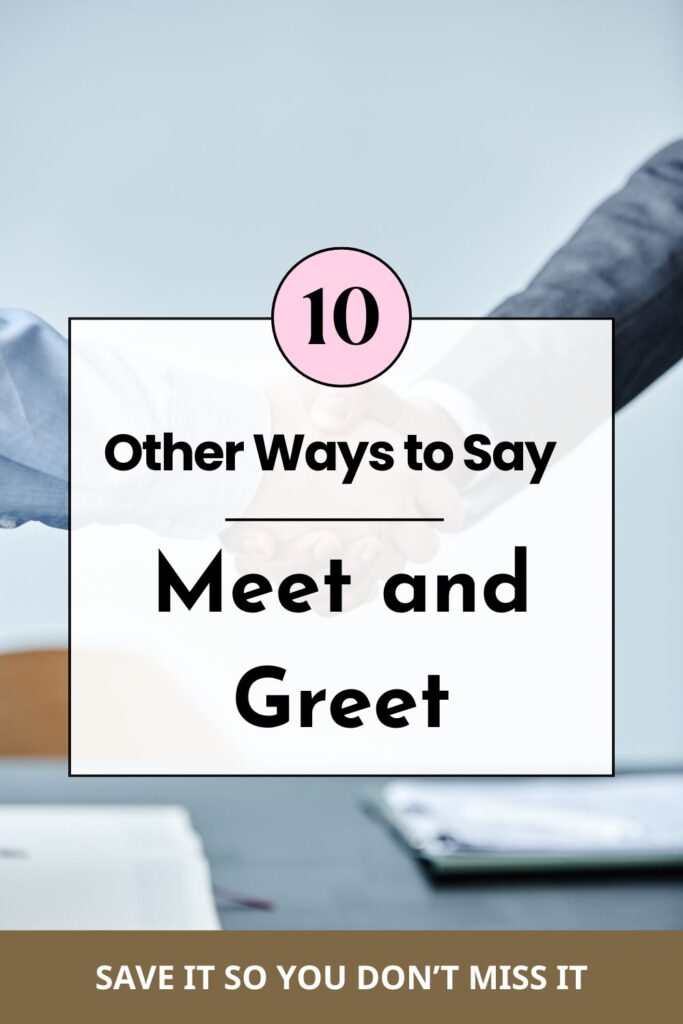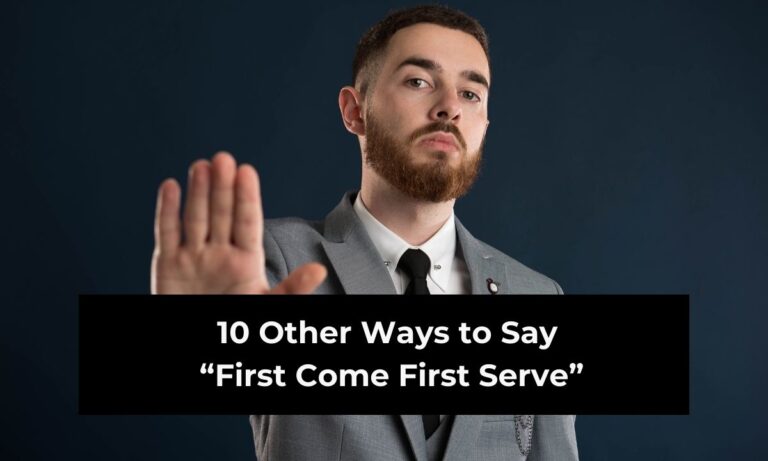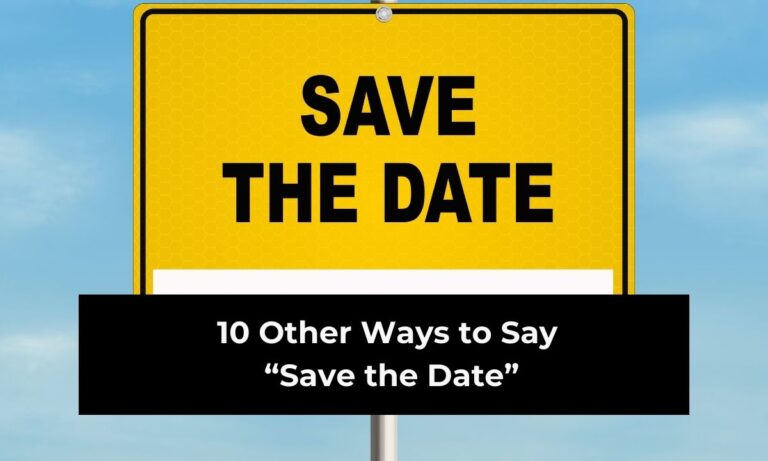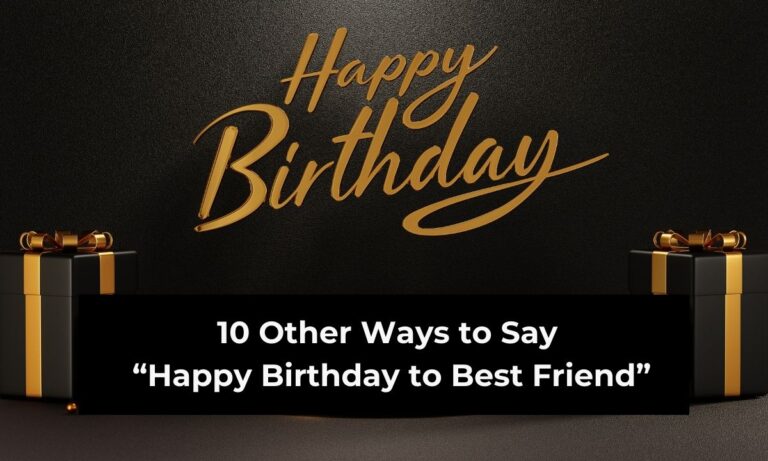When you’re planning an event, writing an invitation, or simply trying to describe a casual gathering, the phrase “meet and greet” often comes to mind. It’s a simple way to describe a social interaction where people come together to connect. But sometimes, using the same phrase repeatedly can feel limiting or even a little stale. That’s when having a collection of alternative phrases comes in handy.
If you want your words to sound fresh, welcoming, and a bit more creative, you’ll benefit from learning other ways to say “meet and greet.” Whether you’re preparing a work email, designing an event flyer, or writing a casual post to invite friends, the right wording can make your message stand out.

Think about it this way: the words you choose set the tone for your gathering. Saying “meet and greet” might work fine for formal settings, but if you’re hosting a fun networking night, a cozy coffee chat, or a casual hangout, you’ll want expressions that match the vibe. Using alternatives not only keeps your language interesting but also helps your audience better understand what kind of interaction they can expect.

In this article, you’ll discover 10 other ways to say “meet and greet.” Each option comes with its own unique tone, from professional to playful, making it easy to find the perfect phrase for your situation. We’ll break down how each phrase can be used, when it works best, and why it might be the right choice for you. By the end, you’ll feel confident replacing “meet and greet” with fresh, engaging words that resonate with your readers or guests.
1. Networking Session
When you want a phrase that feels professional and emphasizes relationship building, “networking session” is an excellent choice. It highlights the purpose of the gathering rather than the act of simply meeting.
This phrase works especially well for business events, industry conferences, or career-focused meetups. If you’re inviting colleagues or professionals, they’ll immediately understand that the goal is more than just introductions—it’s about building meaningful connections that could lead to opportunities.
Imagine you’re sending an email to invite people to an after-work event. Instead of saying, “Join us for a meet and greet,” you could write, “Join us for a networking session with industry leaders.” It instantly feels more purposeful and engaging.
The beauty of this phrase is that it appeals to both new and seasoned professionals. It sets expectations that people will exchange ideas, share contacts, and possibly spark collaborations. It’s also versatile—you can use it for in-person gatherings, virtual events, or even hybrid setups.
By using “networking session,” you show that your event isn’t just a casual gathering, but a place where people can genuinely grow their professional circles. It adds value to the invitation, making it more likely that people will want to attend.
2. Welcome Reception
“Welcome reception” carries a warm, inviting tone that works perfectly for events where guests are being introduced to a new place, group, or opportunity. This phrase suggests not only meeting new people but also celebrating their arrival.
This term is often used for conferences, weddings, orientation programs, or community events. For example, if you’re hosting newcomers to your organization, you might invite them to a “welcome reception” rather than just a “meet and greet.” It feels more thoughtful and celebratory.
The phrase implies that the event is organized, with a welcoming atmosphere and perhaps refreshments, speeches, or small activities. People immediately expect a sense of hospitality, not just casual handshakes.
Using “welcome reception” also gives your message a polished, professional feel. It’s less casual than “hangout” but not as formal as “banquet.” That makes it a flexible option for both social and professional environments.
If you want your gathering to feel like an experience rather than just an interaction, this phrase is a strong choice. It communicates warmth, friendliness, and intention all in one.
3. Kickoff Event
If you’re organizing the first in a series of gatherings or want to celebrate the start of something new, “kickoff event” is a powerful alternative to “meet and greet.”
This phrase conveys energy, excitement, and momentum. People immediately associate it with the beginning of a journey or project. For example, companies often use “kickoff event” when launching a new initiative, introducing a team, or starting a campaign.
What makes this phrase effective is its motivational tone. Instead of just saying people will meet, you’re saying they’ll be part of something that marks the start of progress. This builds anticipation and encourages higher participation.
You could say, “Join us for our project kickoff event,” and participants will expect introductions, overviews, and a sense of shared purpose. The phrase sets a clear agenda, which can help attendees feel more prepared and engaged.
Whether you’re organizing a school program, a nonprofit initiative, or a business project, “kickoff event” sets the right stage. It’s both professional and approachable, making it ideal when you want to inspire involvement right from the start.
4. Icebreaker Gathering
Sometimes, the goal of a meeting isn’t just introductions but also breaking down barriers and helping people feel comfortable. That’s where “icebreaker gathering” shines.
This phrase instantly communicates that the event will involve light activities, games, or conversations designed to ease tension. It’s less formal than “networking session” but still purposeful.
Schools, workshops, and team-building events often use this phrase. For example, if you’re hosting a student orientation, calling it an “icebreaker gathering” signals that it won’t just be a serious meeting—it will be fun, interactive, and focused on helping people bond.
The phrase also helps reduce anxiety. Attendees know they won’t just be awkwardly introducing themselves but will have guided opportunities to connect. That makes it a great alternative when you want your event to feel approachable and engaging.
If your main focus is helping people feel relaxed and connected, “icebreaker gathering” is a fantastic phrase to use.
5. Social Mixer
When you want to strike a balance between casual and organized, “social mixer” is the perfect alternative. It has a friendly, modern vibe that suggests mingling, conversations, and maybe even music or drinks.
The word “mixer” itself implies movement and variety. Guests can expect to circulate, meet different people, and engage in lighthearted conversations. This makes it ideal for young professionals, community groups, or even alumni events.
For example, instead of saying, “We’re hosting a meet and greet,” you might say, “Join us for a social mixer at the rooftop lounge.” The second option sounds far more inviting and exciting.
“Social mixer” also works well when the goal is less about structured networking and more about casual connections. It’s perfect for settings where you want people to enjoy themselves while still expanding their circles.
If you want your event to feel lively and approachable, this phrase will help you set the right tone from the start.
6. Orientation Session
When the focus of your event is to introduce newcomers to a group, workplace, or community, “orientation session” is a clear and professional alternative.
This phrase emphasizes structure and guidance. Attendees will expect to receive important information, meet key people, and understand how things work. It’s often used in schools, companies, and volunteer organizations.
For example, if you’re welcoming new employees, you could invite them to an “orientation session” rather than a “meet and greet.” It communicates that the gathering is not only about introductions but also about preparing them for success.
This option works well because it adds clarity and purpose. People know they’ll walk away with knowledge and confidence in addition to new connections.
If you’re organizing an event that’s meant to educate and welcome at the same time, “orientation session” is a phrase that delivers both professionalism and inclusivity.
7. Introductory Gathering
Sometimes simplicity is best, and “introductory gathering” is a straightforward yet warm option. It communicates the idea of people coming together for the first time without being too formal or too casual.
This phrase is versatile and works in many settings—schools, workplaces, community groups, or clubs. You might use it when inviting a small group of people who are joining something new and need a chance to connect.
For example, “We’re hosting an introductory gathering for our new book club members” sounds approachable and welcoming. It sets clear expectations that the event is about introductions, but without unnecessary formality.
The strength of this phrase lies in its clarity. Anyone reading it immediately understands the purpose of the event. It also works well if you’re trying to keep your communication inclusive and free of jargon.
If you want a phrase that feels easygoing and suitable for nearly any group, “introductory gathering” is a safe and effective choice.
8. Community Meet-Up
For local events or group activities, “community meet-up” is a powerful alternative. It emphasizes togetherness and belonging, making it perfect for neighborhood gatherings, hobby groups, or support networks.
This phrase suggests a casual and friendly atmosphere where people with common interests can connect. For instance, if you’re running a fitness club, inviting people to a “community meet-up” feels more inclusive than a formal “meet and greet.”
The phrase also carries a sense of grassroots energy. It implies that people are coming together organically, driven by shared interests or goals. This makes it particularly appealing for volunteer groups, nonprofits, and clubs.
“Community meet-up” also works well for recurring events. You can easily use it to describe monthly or weekly gatherings where people come together regularly.
If your event is all about building bonds and fostering a sense of belonging, this phrase will set the right tone and attract the right audience.
9. Connection Event
If your main goal is to help people build relationships, “connection event” is a straightforward and inspiring alternative. It focuses less on the logistics of meeting and more on the outcome: creating meaningful connections.
This phrase works well across both professional and personal contexts. It communicates that attendees will leave with new relationships, whether they’re colleagues, collaborators, or friends.
For example, “Join us for a connection event designed to bring creative minds together” immediately suggests a purpose-driven, engaging gathering. It goes beyond simply meeting to emphasize relationship-building.
The beauty of this phrase is its emotional appeal. People are more likely to attend if they feel the event will enrich their personal or professional lives. It also helps create a positive impression, suggesting that the gathering will be intentional and rewarding.
If you want your invitation to feel warm, inspiring, and purposeful, “connection event” is a perfect substitute for “meet and greet.”
10. Gathering of Friends
Sometimes, the best alternative is the simplest and most heartfelt. “Gathering of friends” is a warm, approachable phrase that works beautifully for informal or personal occasions.
Unlike more formal options, this phrase emphasizes comfort, belonging, and shared joy. It works perfectly for family reunions, casual parties, or hobby groups where the focus is less on networking and more on companionship.
For example, saying, “Let’s plan a gathering of friends this weekend” feels more heartfelt and personal than “meet and greet.” It creates an instant sense of warmth and familiarity.
This phrase also works well if you want to highlight the emotional value of your event. Guests immediately understand that it’s about enjoying time together, not just making introductions.
If your gathering is about friendship, community, and togetherness, “gathering of friends” might be the most authentic and inviting phrase you can use.
Conclusion
Finding the right words to describe your event can make all the difference in how people respond. While “meet and greet” is a widely recognized phrase, it’s not always the most exciting or accurate option. By using alternatives like “networking session,” “welcome reception,” or “social mixer,” you can set the right tone and attract the right audience.
The phrases you choose help paint a picture of what your gathering will feel like—professional, casual, celebratory, or heartfelt. Each of the ten alternatives we’ve explored gives you the flexibility to match your message to the mood and purpose of your event.
The next time you’re crafting an invitation, flyer, or announcement, don’t feel limited to “meet and greet.” With these creative and thoughtful alternatives, you’ll be able to communicate more clearly, connect more effectively, and inspire more people to join in.
Words matter, and the right ones will help your gathering feel as special as you intend it to be.
FAQs
1. Why should I avoid always using “meet and greet”?
Using the same phrase repeatedly can make your invitations feel repetitive or generic. Alternatives help set a clearer and more engaging tone for your event.
2. What’s the best phrase for professional events?
For professional settings, “networking session,” “orientation session,” or “kickoff event” work best as they convey structure and purpose.
3. Which alternative is best for casual events?
For casual settings, “social mixer” or “gathering of friends” feel warm and approachable.
4. Can these phrases be used for virtual events?
Yes, most alternatives like “networking session,” “connection event,” or “community meet-up” work perfectly for online gatherings.
5. How do I choose the right alternative?
Consider your audience, the formality of the event, and the atmosphere you want to create. Choose a phrase that matches the tone and purpose.





